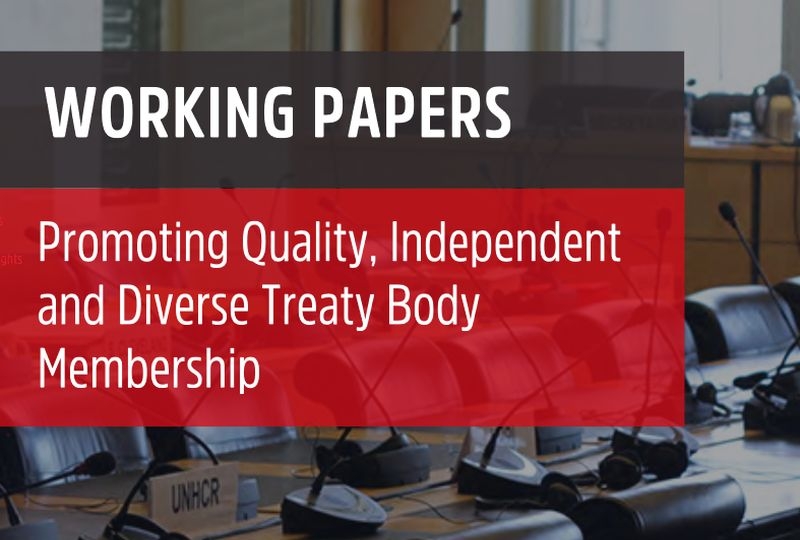The research highlights that open, formal and transparent processes for nominating candidates at the national level remain the exception, and therefore not provide the guarantees that states parties nominate the best candidates. It also shows that screening mechanisms to review nominations are instrumental in assisting states parties to elect the most suitable candidates.
Based on this analysis, the author calls for the establishment of procedural guarantees to oversee compliance of prospective candidates and makes specific recommendations regarding the nomination of experts, their election and the transparency and availability of information about candidates.
‘As a resource document, this paper will surely be useful for academics and civil society representatives engaged in strengthening the UN TB system. But the document also gives a neutral insight into today’s procedures for states wanting to know the options out there to best handle the selection of TB members’ explains Felix Kirchmeier.









